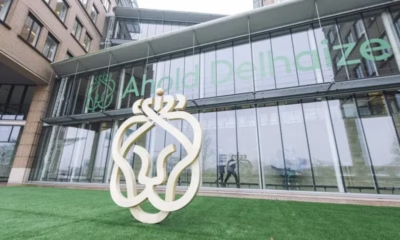Tech & E-Commerce
Grocery Industry Faces Growing Cyberattack Threats—Is It Ready?

Grocery Cyberattack Risk: Is the Industry Ready for the Next Threat?
The grocery cyberattack risk is growing fast as cybercriminals continue to target food retailers with devastating results. Recent incidents have shown how vulnerable the industry remains.
Two weeks ago, a cyberattack on United Natural Foods Inc. (UNFI) disrupted food supply chains for major grocers, including Whole Foods. The attack shut down ordering systems, leaving shelves empty and exposing the industry’s weaknesses.
Attacks Keep Rising Across the Grocery Industry
UNFI’s attack followed a similar incident at Ahold Delhaize USA in November. That breach left Stop & Shop stores struggling to restock shelves.
Cybersecurity experts say these attacks reflect a dangerous pattern. Retailers, especially grocers, remain top targets for sophisticated cybercriminals.
One hacking group, known as Scattered Spider, has launched a global wave of attacks. Their tactics include phishing and impersonating IT staff. They steal data and install ransomware.
Global Retailers Already Hit
In April, Scattered Spider attacked U.K. retailer Marks & Spencer. That disruption slashed profit forecasts by one-third.
In May, the group also targeted Co-op, compromising 20 million user credentials. Victoria’s Secret suffered severe online sales disruptions after a similar attack.
Why Grocers Face High Cyberattack Risks
The grocery cyberattack risk exists because grocers hold large amounts of customer data. They also rely on complex, real-time IT systems.
Dean Gefen, CEO of cybersecurity firm NukuDo, warned that many grocers depend on outdated third-party systems. These legacy systems are rarely updated, making them easy targets.
“Grocers must protect their networks now,” Gefen said. “The supply chain depends on secure, modern technology.”
Walmart’s Cybersecurity Wake-Up Call
Even retail giants like Walmart have faced cybersecurity criticism. The company recently paid a $10 million FTC settlement for weak fraud prevention policies.
Walmart employees allegedly processed transactions even when fraud was suspected, making it easier for scammers to exploit customers.
How the Grocery Industry Can Prepare
Protecting against cyberattacks requires two key steps. First, grocers must build a culture of cybersecurity awareness. Employees need to recognize and report suspicious activity.
Second, companies must invest in modern security systems. That process can be expensive, but it’s necessary to defend against AI-enhanced cyberattacks.
The Stakes Are Higher Than Ever
The cost of ignoring these risks is steep. Cyberattacks disrupt operations, damage reputations, and lead to expensive system repairs.
As recent attacks show, the grocery cyberattack risk is not going away. Industry leaders must act quickly to stay ahead.
For more breaking news on grocery trends and cybersecurity, explore this website now!





















